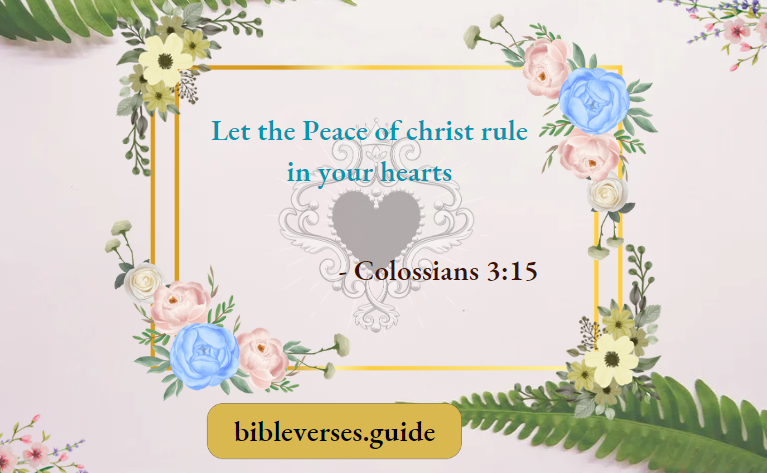Colossians 3:15 ESV Context
In Colossians 1:1–2, we learn that the book is a letter to the Christians at Colossae written by Paul and Timothy.
The church at Colossae started while Paul was in Ephesus, so while he may have never visited Colossae, Paul feels a sense of pastorship toward the people there.
He writes a letter with Timothy (some scholars believe Timothy was transcribing for Paul) to encourage the Colossians in their newfound faith and to provide instructions on living a Christlike life.
Chapter 3 focuses on specific ways to “put on the new self” and change their behavior from “the old self” (3:9) now that they have Christ.
Verses 8–16 focus on being Christlike in relationships with others—Paul and Timothy instruct the Colossians to be kind, and humble, and to forgive one another.
Read and Learn More 100 Bible Verses To Overcome Worry and Anxiety

Colossians 3:15 ESV Meaning
Because of the context of the previous few verses, verse 15 continues the theme of loving and getting along with others. If we allow “the peace of Christ” to rule our hearts, we will be able to achieve unity with other believers.
In order for our relationships to be transformed by this peace, the peace needs to first rule in us and over our thought life.
In the same way that having Christ’s peace rule our hearts changes how we interact with others, having Christ’s peace also changes how we interact with ourselves and respond to the world around us.

If we are focused on the peace Christ has given us, everything else that flows out of us—our thoughts, words, and actions —will have an undertone of peace rather than an undertone of fear or worry.
This is the image Paul instructs us to strive toward.
Colossians 3:15 ESV Application
Stress, worry, and anxiety (and the innumerable situations that cause those things) threaten to upend the peace in our hearts, but Paul encourages us to allow the peace of Christ to live in our hearts even still.
If our thoughts are normally a chaotic collection of worries throughout the day, focusing on this peace and the hope of being Christlike can help us combat those thoughts.
Achieving peace is not an easy goal, but it is possible with the new life that we have in Christ.
The verse ends with the simple yet powerful directive to “be thankful.” Gratefulness is often a common tactic used to combat worry or negative thinking, and for good reason—it works!
If we are focused on thanking God for the ways in which he has provided, our focus is not on our worries. This is not only a useful technique toward healthy thinking—being thankful is a biblical mandate.
Creating a lifestyle of thankfulness can help us obtain the peace of Christ that Paul speaks of.
“I am the good shepherd. The good shepherd lays down his life for the sheep.”
